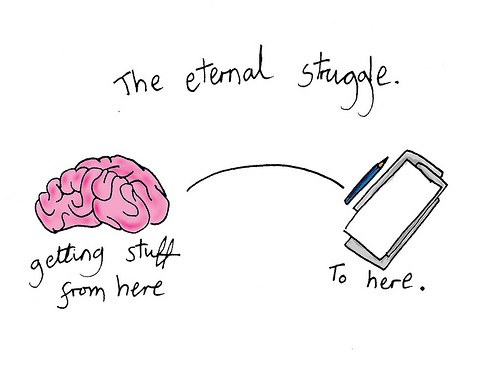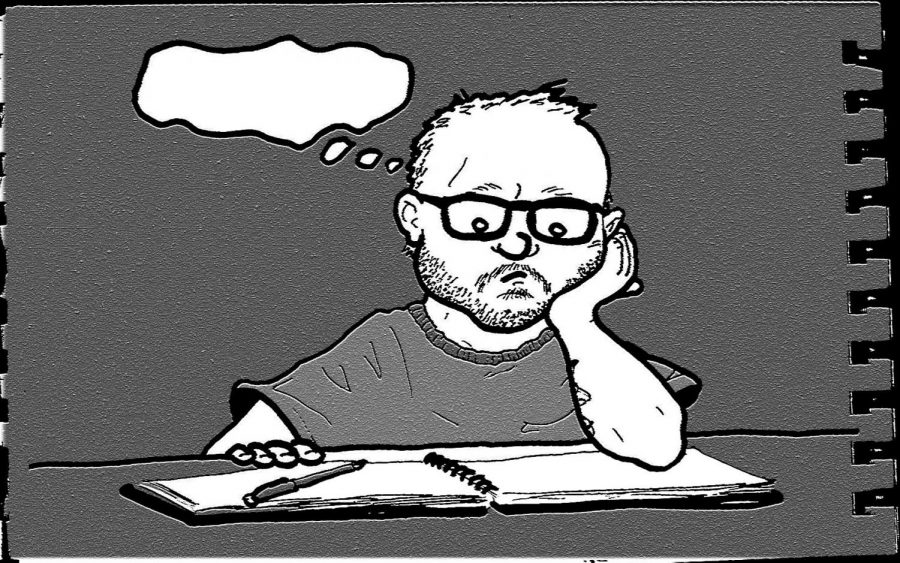Writer’s block is, quite sadly, a natural part of the writing process and will, in one form or another, hit every single writer out there at some point or another. However, these 16 utterly invaluable tips and tricks from leading writers in the field will supply you with all the tools essential for combatting the block when it next comes up..
Navigate the article
#1 Don’t Start From The Start
Nobody ever said you have to start from the beginning. I have been faced with overcoming writer's block many times. I've often found that starting from the first word in the first sentence can be overwhelming. When this happens to me, I find it's less difficult to start writing for a later section, especially if I have a well established broader sense of the story as a whole.
Contributor: Joshua Horn from actliveart.com
#2 Don’t Fight It
What I've learned to do - and it's consistently effective - is to never try to push through the writer's block.
First, I try to get past the beating-myself-up part by telling myself that I've worked hard and it's ok to take breaks.
Then I do something that helps me zone out, like reading lifestyle blogs, online window shopping, or reading a novel.
After that, I usually try to sleep on it. By the next morning, I'm almost always ready to write again, and I write with greater efficiency than I would have if I'd tried to do it the day before.
Contributor: Leah Wise from stylewise-blog.com
#3 Change Your Environment
Changing your environment can be a highly effective method of overcoming writer's block and getting the words to start flowing.
Something as simple as changing the position of your chair or mixing up the layout of your working space can be enough to give you the change of perspective needed to stimulate new ideas.
Other times, you may need to change your environment entirely by heading to a cafe, a co-working space or library. However, you need not limit yourself to quiet locations. Places where you can people watch and observe interactions going on around you are great for developing story ideas, building characters and expanding your descriptive language.
Contributor: Jessica Korteman from notesofnomads.com and travelsoloanyway.com
#4 Generate Conversation
Talk to people who don't know much about your genre or subject matter. They'll eventually ask questions you haven't thought of.
Look up your subject on Quora and start answering some questions. Getting into the groove will not only help you find ideas, but it'll also solidify you as a subject matter expert. You can also use the free AnswerThePublic tool to see what internet searchers look up on any given topic. If you're writing blogs or making vlogs, answering those questions is a great way to generate some inbound traffic to your site.
Contributor: Tara M. Clapper from geekinitiative.com
#5 ’25 Minutes Exercise’
To overcome writer's block, I set a timer for 25 minutes and I have a piece of paper and a pen. I set the timer and I think of every single thing that comes to mind when I have a subject in mind. How it makes me feel, what it reminds me of, what it does, who I think it helps, who I think it's for and what I like and don't like about it. Without structure, I will keep writing until everything I can think of is written down. In doing so, this breeds new ideas, gets everything on a page so I can organize it further and I can start to see patterns in my work in order to complete something interesting.
Contributor: Steve Dolson from lxry.ca
#6 Unlock Your Mind
One of the things I like to share with students is the role of the body and our unconscious mind in telling our stories. Sometimes our unconscious mind has a story it really wants to tell, but us in our rational, conscious mind have a different idea of what we want to write.
It's my experience that just as our mind is never empty of thoughts, we are never empty of stories. What's important is that we tap into our unconscious and listen to what we really want to say without any preconceived notions or expectations of what that may be.
After some time exploring what your unconscious wants to say, you can see what new ideas come to you, and what you might want to work on. You may find yourself returning to a project you are blocked on with fresh eyes, after doing some freewriting.
Contributor: Kate Orson from thedesiretowrite.org
#7 Create Broader Outlines
I have noticed that starting to write on a blank page is a lot harder as compared to writing when there is an outline. While writing blog posts, I create an outline of a blog post one day in advance. All I do is write down the headers/topics that I plan to cover. Sometimes, I even write subheadings for main topics.
Now when I have to write the actual blog post, I work on it one topic at a time. I have found this to be extremely effective. Since the task is to only write a few lines about a topic/subtopic, I find a lot less resistance in my brain as compared with starting on a blank sheet.
Contributor: Sumit Bansal from craftofblogging.com
#8 Meditation
One simple and often overlooked way to overcome it is meditation. 10 minutes of silence, in a calm environment before coming back to your work can often do the trick. There's plenty of easy to use guides which can help you with how to do it!
Contributor: Eddie Bye from supplementdevil.com
#9 Draw
Another method I use for the more creative articles and features is to draw. Shut your laptop for a bit and put pen to paper and let rip. It doesn't even have to be relevant to your work.
But for me this allows creativity to flow free and exercises my mind a bit before coming back to the keyboard.
Contributor: Eddie Bye from supplementdevil.com
#10 Have Multiple Projects On The Go
My secret is to always have several projects going at once. I find that keeping some on simmer means that if I can't get started on a particular project when I sit down to write, another one will tap me on the shoulder and say "I'm ready now."
Contributor: Shel Horowitz from goingbeyondsustainability.com
#11 Tune Into Daily Inspirations
To get through writer's block you have to tune into daily inspiration which is everywhere. Many get passion when they are angry, upset, frustrated or annoyed. Keep a recorder with you and use the notes function on your smartphone to write down or record thoughts during your everyday interactions.
At the end of each day review them. Something is bound to stick. Do this regularly and before you know it you’re back in the writing groove. And no matter what write at least every other day even if it’s a sentence on washing dishes to train your brain to function in a writers mode.
Contributor: Aleasa M. Word, CLC, CEIC from awordandcompany.com
#12 Attitude
I believe overcoming writer's block has a lot to do with attitude. When facing a blank screen or page, as I often have done, put fingers to the keyboard and write something. At first, it can be anything, and if you are determined to keep typing and keep at it your thoughts will begin to emerge. Don't let fear take over, don't freeze, keep taking slow, deep breaths and let the thought process take over as you type.
Contributor: Don Allison from fadedbanner.com
#13 Let It Happen
Writer’s block, in my opinion, is often synonymous with perfectionism. Perfectionism breeds procrastination.
We feel that what we do must be so marvelous that if it isn’t great we won’t let it happen. The beauty of today’s devices is that it’s so easy to delete and rewrite that our revisions can be almost instantaneous and we can save past versions to review again if we so choose..
Just let it happen. Schedule a time to sit and work, preferably every day, or work on demand, if necessary, but let your thoughts flow. Once they’re written, they can always be revised. If you’ve seen the original pages of some of the world’s most famous and beloved authors, they are covered - often 80%, in fact - with penciled corrections.
Contributor: Arlene B. Englander from arleneenglander.com
#14 Play An Instrument
Taking a break during the day and playing the piano has also helped me get my focus back and gets my creative juices flowing again. Playing any instrument has been scientifically proven to engage practically every area of the brain at once especially the visual, auditory, and motor cortices so it gets my mental capacity going again and helps me through my afternoon. It's like a mental full body workout and lets me refocus on what I need to do.
Contributor: Gene Caballero from yourgreenpal.com
#15 Identify Productive Hours
Identifying your most productive hours of the day is also another important strategy when it comes to your creative output as a writer. Pushing yourself to write when you're not in the zone often becomes wasted hours staring at a computer screen. Instead, assign your most productive hours to distraction-free writing and leave less creatively demanding tasks for other pockets of time in your day.
Contributor: Jessica Korteman from notesofnomads.com and travelsoloanyway.com
#16 Match Your Moods
Whenever I'm trying to overcome writer's block, I'll try to get into the same mood that I'm trying to convey on the page. For instance, if I'm writing a sad scene, then I'll listen to sad songs or watch sad YouTube videos. If I'm writing a cheerful scene, I'll go on a hike because it puts me in a good mood. If I'm writing an informative piece, then I'll read the news.
Contributor: Tessa Clare, author of The Divinity Bureau from divinitybureau.com
This post was created with our nice and easy submission form. Create your post!

















